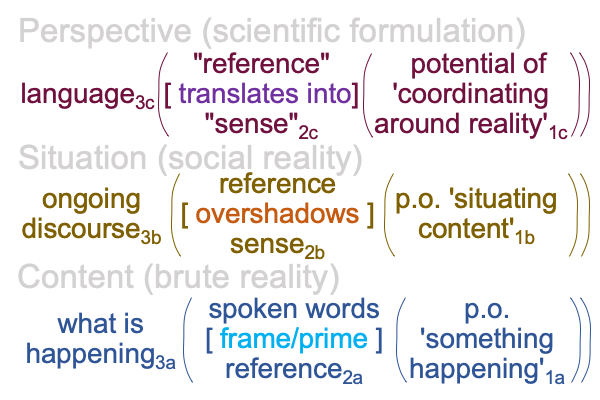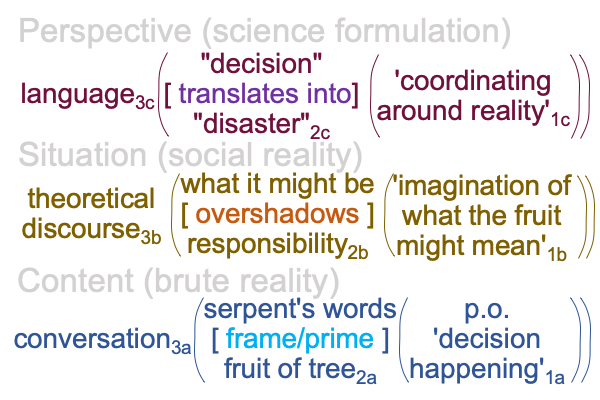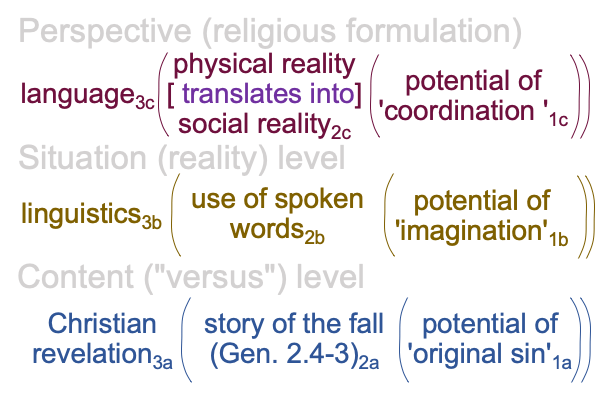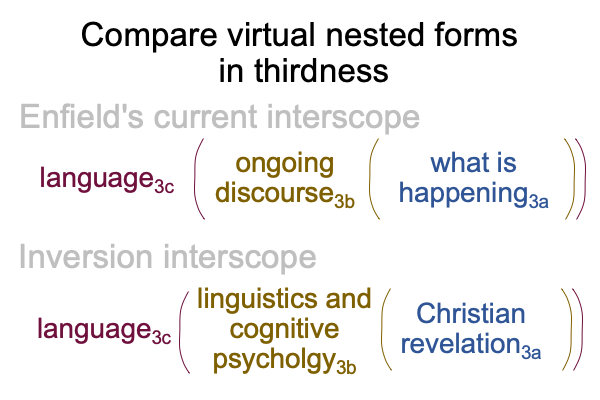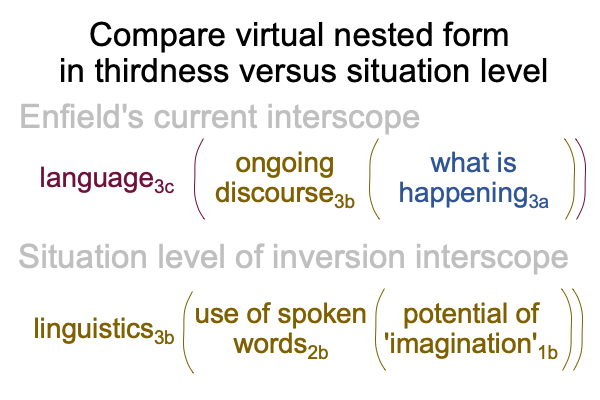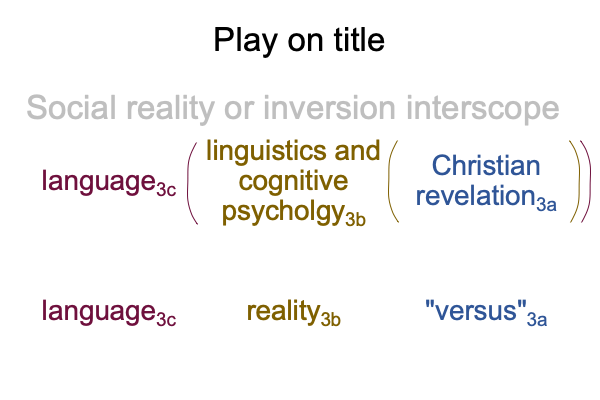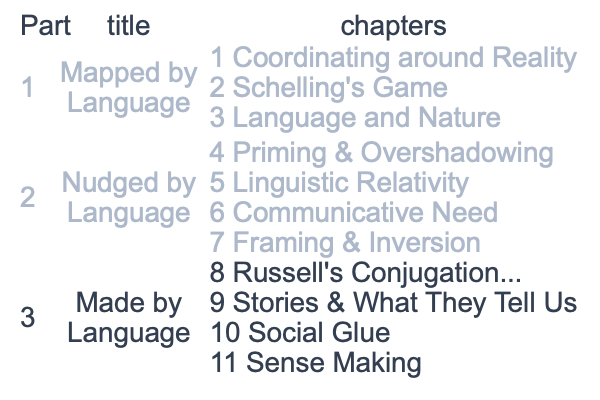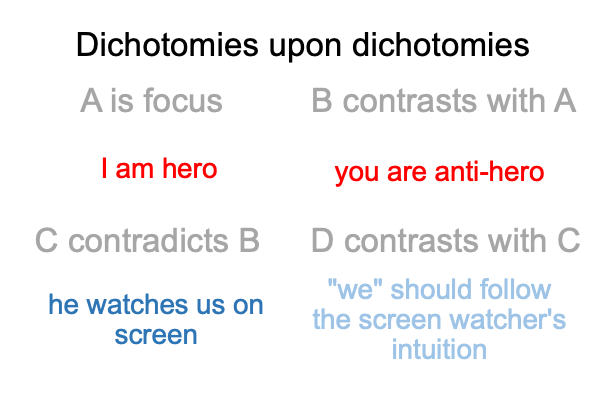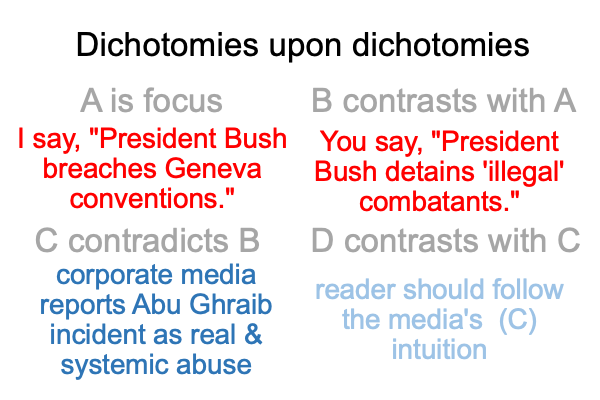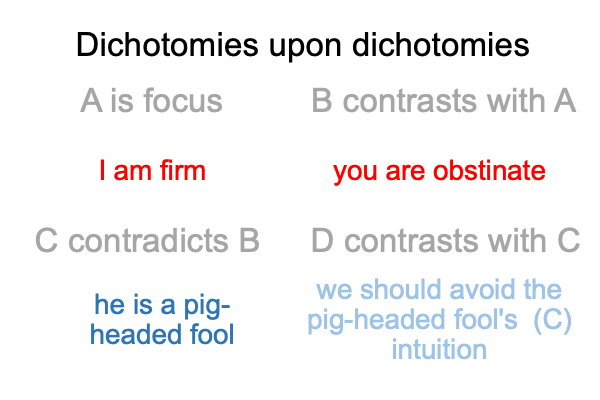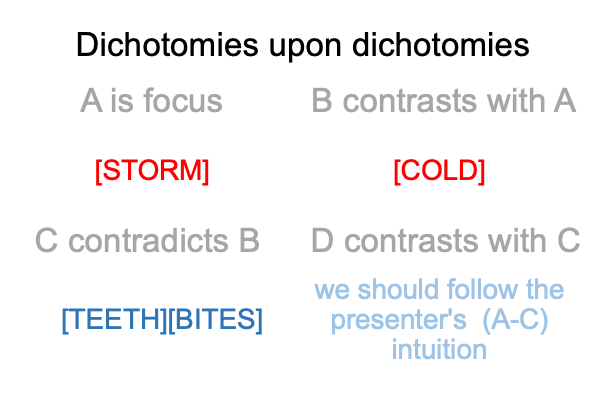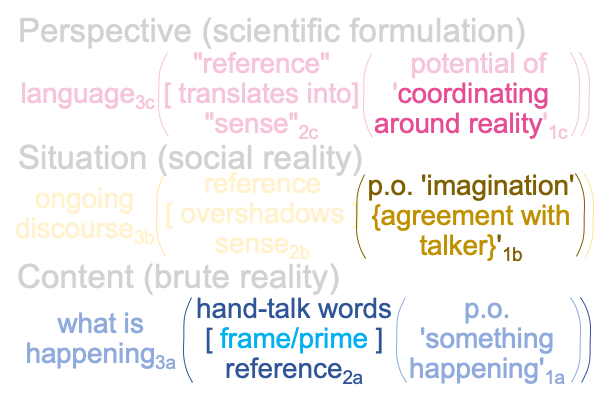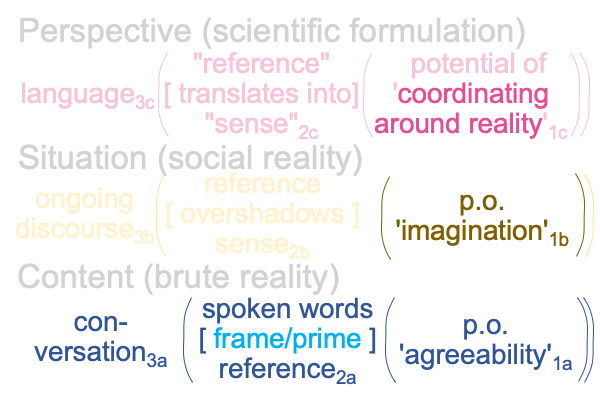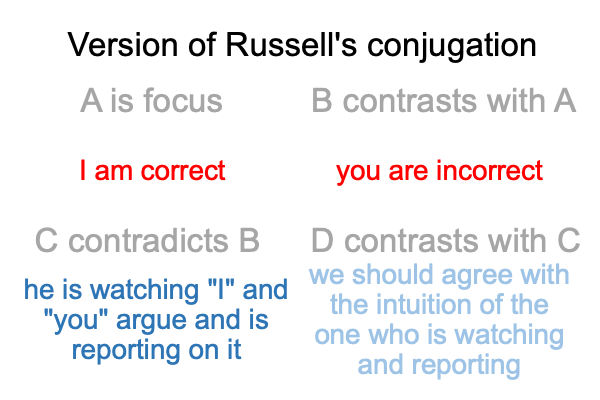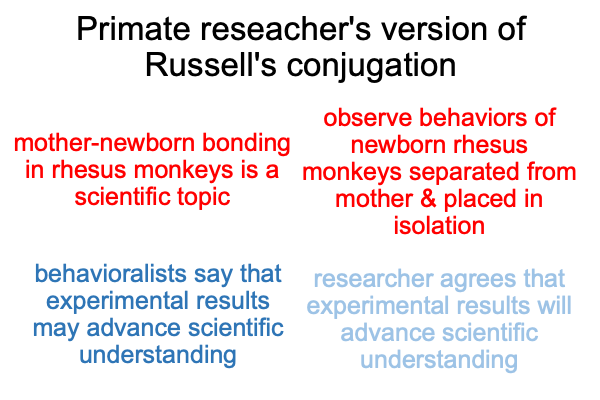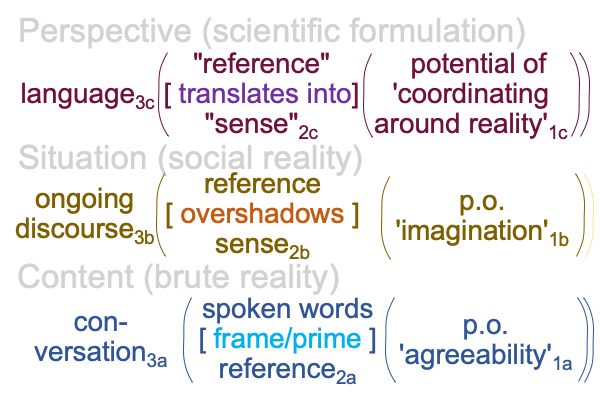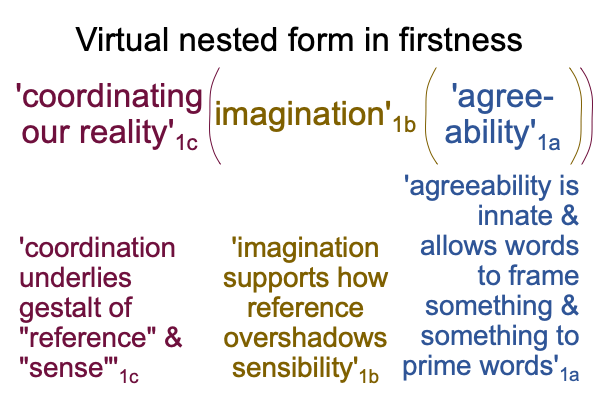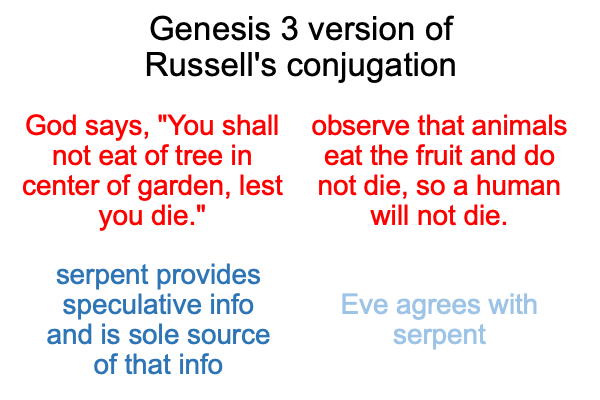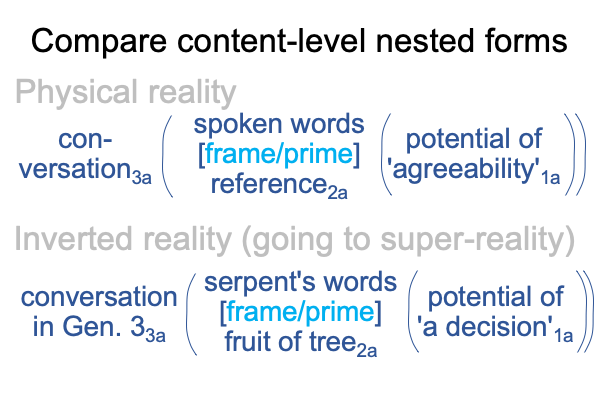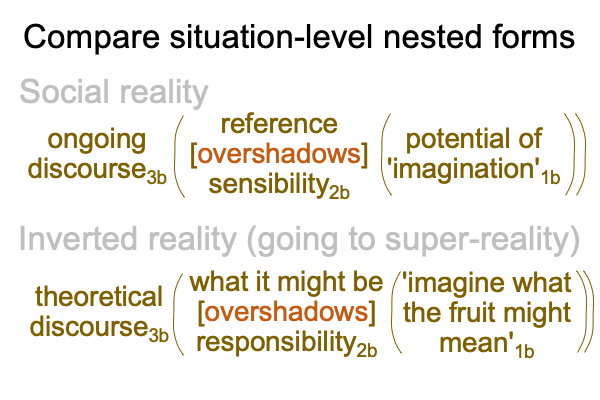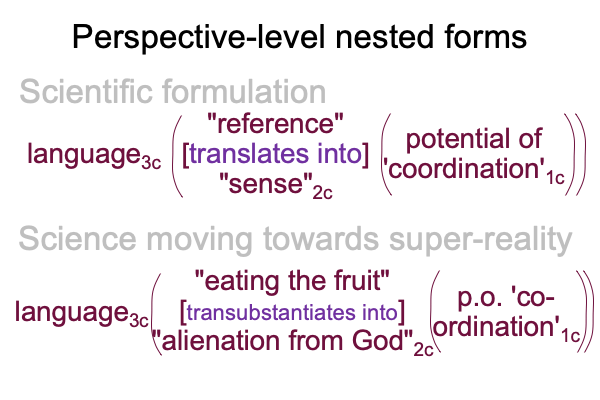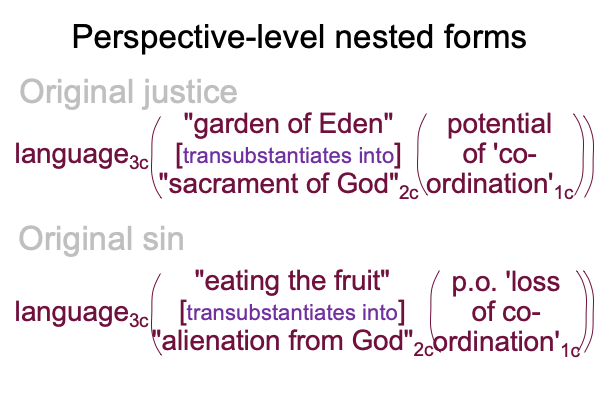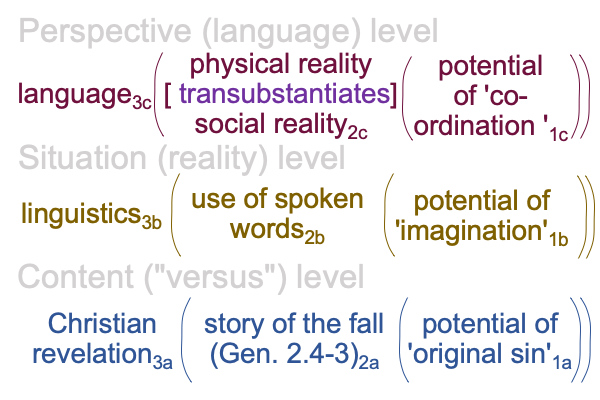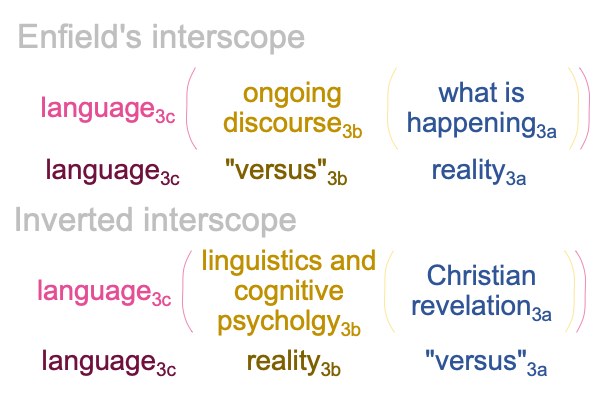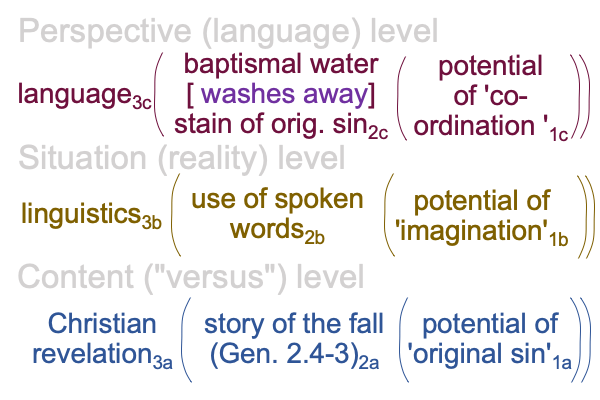Looking at N. J. Enfield’s Book (2022) “Language vs. Reality” (Part 14 of 23)
0967 Chapter seven concerns framing and inversion, where “frame” takes on a more expansive character and “inversion” involves a sudden change of awareness. The background becomes the foreground and the foreground becomes the background.
So, I walk on my own path, as I saunter through this chapter. The figure below stands in the foreground. I have an inkling of what constitutes the background. I suspect what lurks in the shadow.
0968 Here is the diagram of the current version of Enfield’s interscope.
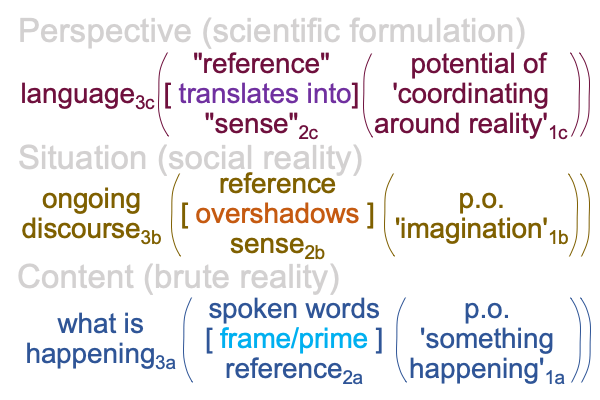
0967 So, why am I suspicious?
Content-level spoken words2a [frame] reference2a is situated by reference2b [overshadows] sense2b. What if reference2bis not the same as reference2a? That question dwells in the potential of ‘coordinating around reality’1c, which underlies a perspective-level actuality that recapitulates the situation-level and content-level actualities2c in the normal context of language3c.
Yes, what if the perspective-level actuality2c can’t quite lock onto the foregrounded reference2a,2b and sense2b?
Does it throw a switch labeled, “Gestalt”?
0968 A hint at the character of my suspicion comes from the example of a religion and science conference in an auditorium.
Enfield is an expert in linguistics and cognitive psychology. The above interscope reflects that. The above interscopecould be used as a figure in a presentation by a psychologist.
Yet, it is an interscope. The entire relational structure stands for an implicit abstraction. So, the entire interscopecomposes a gestalt, where all the elements move as one awareness.
0969 Do I see it?
Yes, it is filled with explicit abstractions, which makes the application stand in the foreground, since the elements associate to Enfield’s argument.
No, Enfield’s explicit abstractions associate to elements in a relational structure (an implicit abstraction) that the author does and occasionally does not seem to recognize.
970 May I go back to the initial distinctions that this examiner and this author render?
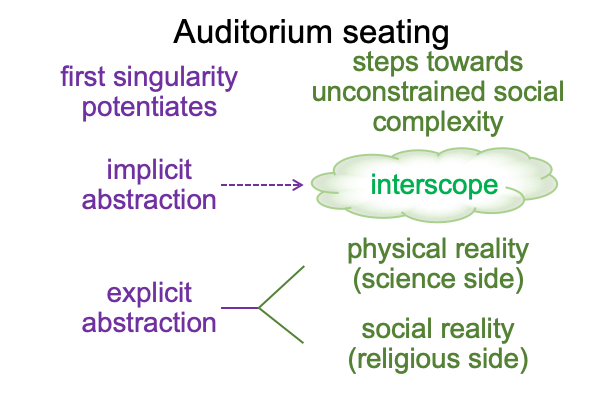
When I look at this figure from the point of view of someone outside of the figure, the distinction between physical reality and social reality looks to be an explicit abstraction.
When I look at the distinction between physical reality and social reality from a point of view within the interscope in the cloud of implicit abstraction, the distinction looks to be a difference between academic scientists (sitting on the “science” side of the auditorium) and theologians (sitting on the “religion” side of the auditorium).
0971 Let me say that again.
The current version of Enfield’s interscope associates to academic science. Enfield discusses language and cognition as if they are physical realities under investigation by linguistics and psychology. So, he figuratively sits on the science side of the auditorium at the science and religion conference. Dyadic material relations occupy the foreground.
At the same time, the same interscope, filled with almost the same explicit abstractions, may address the theological side of the auditorium at the religion and science conference. Immaterial triadic relations occupy the background. But, theologians do not have the methodology to bring them to the foreground.
0972 Let me take my suspicion to the next level, by proposing a pathway.
The story in Genesis 2.4 through Genesis 3 is a foundational fairy tale about the start of our current Lebenswelt. And, even though Saint Augustine frames this story in terms of his doctrine of original sin, which has its own disciplinary-specific terminology, I submit that this story may also be regarded as a fairy tale about the way that speech-alone talk potentiates unconstrained social complexity, by changing the character of both language and reality.
Furthermore, I submit that this fairy tale dwells within the background of Enfield’s scientific treatise.

